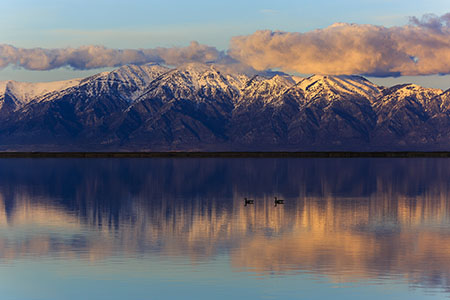What are interstate streams?

An interstate stream is any river or stream that crosses a state boundary, or where the contributing basin encompasses two or more states, and whose use is governed by compact between states. Utah has two interstate streams that flow within its borders – the Bear River and the Colorado River – and is party to their respective interstate compacts.
Utah is also party to the Columbia River Interstate Compact, but typically Utah has not been involved in meetings and discussions. A small part of the northwest corner of the state contributes to the Columbia River Basin, but the actual river does not flow within state borders.
What are interstate compacts?
Interstate compacts are basically agreements between states on how to manage and/or share water from an interstate stream or river. Two or several states can be signatories to these agreements and they usually form the foundation of policy for the river’s use and operation.
Why are interstate stream issues important?
For over a century, the Bear and Colorado Rivers have served as significant and essential resources for Utah and it’s citizens. As populations have increased and water resources become more strained by changing and unpredictable climates, there is a heightened need to safeguard Utah’s right to use and develop these rivers. Protecting the interests of the State of Utah and preserving the ability to continue with state and community plans requires continual involvement and awareness regarding any issues that affect these rivers. Negotiations, research and policy decisions guiding river management are ongoing, and without representation from Utah, would proceed without consideration of our needs. The Division of Water Resources and staff are tasked with and dedicated to maintaining a strong presence and voice for Utah’s interstate streams.
For more information contact, Scott McGettigan, the interstate streams manager, scottmcgettigan@utah.gov or 801-538-4754.
